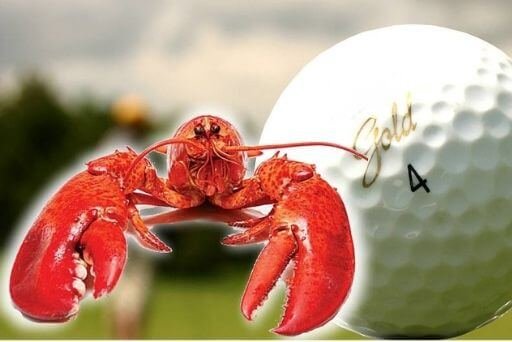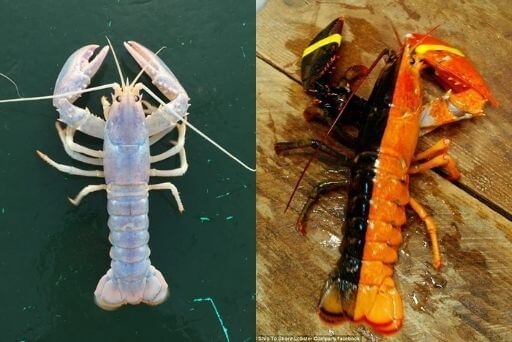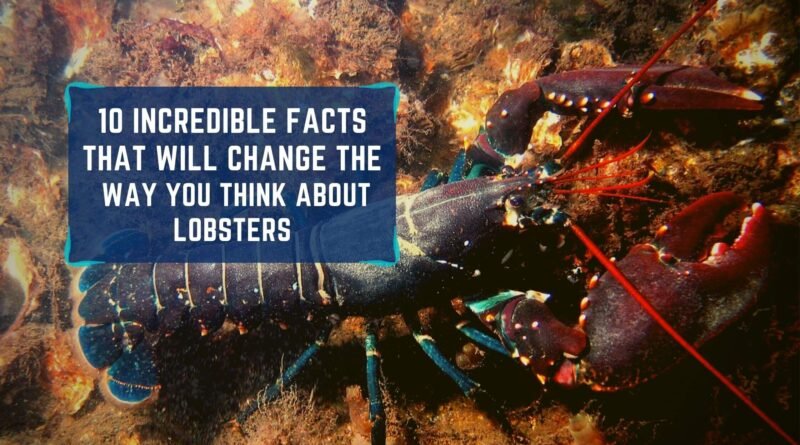10 Incredible facts that will change the way you think about lobsters
The animal kingdom is an exciting place, and it is wondrous how new facts keep coming to light about animals that humans have been familiar with for a long time. One very interesting sea creature is the lobster, which is also one of the most profitable culinary commercial items globally. Here are ten incredible lobster facts that are guaranteed to change the way you view them.

- Lobster Shells Can Be Used to Make Golf Balls
David Neivandt, a professor at the University of Maine, developed a way to make golf balls out of lobster shells. The shells that remain behind after lobsters are processed can be used to make biodegradable golf balls. These balls are biodegradable and are in high demand on luxury cruise ships. These balls are cost-effective and are a very useful alternative.
- Lobster Was Once Prison Chow, Not A Delicacy
Lobster is well-known for being a very expensive and luxurious food item. But did you know that at one time, it was used primarily as prison food? In prisons near the coastline, lobsters were used as food because they were “cheap”, “plentiful”, and also “tasteless”. There were riots in Maine prisons at one time because the inmates were served lobster every day.
- Lobster Claws Are Extremely Strong and Powerful
Lobster claws are very strong and can exert very high levels of pressure. One study has found out that their claws can exert more than 100 pounds of pressure per square inch – which is 440 Newtons worth of force. This means that a large lobster could very well break your finger if it tried. They can cause some serious damage as well.

- Albino Lobsters Are Very Rare – They Are Only Found As 1 in 100 Million
Lucky fishermen have sometimes caught albino lobsters that are completely devoid of any colour. When these lobsters are caught, they are usually donated to aquariums and research facilities instead of being eaten. Split colored lobsters can also be discovered – although the odds of discovering such a lobster is only 1 in 50 million.
- Lobsters Also Practice Cannibalism Within Their Communities
Scientists have discovered that lobsters practice cannibalism within their communities. Large specimens typically tend to hunt and eat smaller lobsters. This is the reason why lobster cannot be farmed like other forms of seafood. Lobsters can be trapped by using a very clever method where the lobsters are baited into a trap with the help of dead fish and plankton.

- Lobsters Keep Growing Indefinitely – According to the University of Maine
Another exciting fact about lobsters is that they keep growing indefinitely. According to marine biologists, this is difficult to confirm because traps are not equipped to catch very large lobsters. Very large lobsters have sometimes been caught – but fishermen usually throw them back into the ocean so that they can add quality and vigor to the species’ gene pool.

- Boiling Lobsters Is Illegal In Some Places
It is pretty well-known that boiling lobsters is one of the best ways of eating them. However, this practice is considered illegal in some places. Most notable among the exceptions is the village of Reggio Emilia in Italy, where boiling lobsters alive will get you a fine of 500 Euros. Boiling lobsters is also illegal in the countries of New Zealand and Switzerland.
- Lobsters Have The Power of Regeneration
Like starfish, lobsters also have the power of regeneration. Research has shown that they are capable of regenerating their limbs within the period of only one intermolt. They take some time to do so, but the size of the regenerated limb is close to the lost one. Lobsters can also regenerate other necessary body parts, such as the claws and their antennae.
- Lobsters Eat Their Empty Shells After They Molt
Lobsters keep growing, but their hard shell or exoskeleton does not. As a result, lobsters have to shed their shell regularly and develop a new one immediately after. This is called the molting period, and lobsters are very hungry during this time. They eat their empty shells after they molt and replenish all of the lost calcium.
- Lobsters Do Not Suffer From Any Signs of Aging
Scientists have discovered that lobsters can live for more than 100 years. They do not suffer any signs of aging – such as weakness or decline in health. Adult lobsters have the same vitality and strength as young ones – even when they are more than a century old. Even elderly lobsters can regrow their limbs easily.
These have been 10 of the most interesting lobster facts that are definitely going to leave you surprised. These are interesting animals, and it’s a very rewarding experience to study them because biologists keep finding new things about them.




